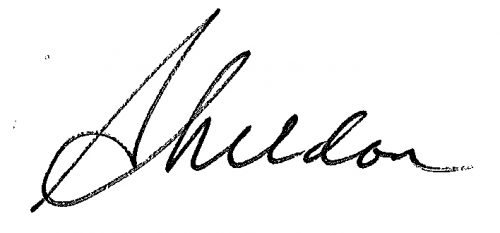In Dependence
 A Letter to Pittsburgh Presbytery from
A Letter to Pittsburgh Presbytery fromIn Dependence
Today Canadians celebrate their 1867 grant of self-governance within the British Empire, and on Sunday the United States marks its national independence from English rule. Canada has retained a ceremonial alignment with the English monarchy, but U.S. independence is absolute – naturalized citizens (like me) promise to forswear all allegiances to any foreign “potentate.” Canada considers me one of its citizens by virtue of my birth there, but the U.S. recognizes only my American citizenship. We in the U.S. are adamantly independent, without qualification.
The quest for independence from tyranny drove the pilgrim colonists to our shores. Their subjugation back home was not primarily political, but religious (though it did have political consequences). Dissenters from the state-sanctioned church were tired of being second-class citizens.
Their insistence on the same privileges for everyone, regardless of creed, was later enshrined in the U.S. Declaration of Independence. The U.S. Constitution established the right to “free exercise” of religion for all persons. Free rights did not extend, alas, to native peoples and slaves. The dark side of absolute independence is the tendency to disregard those outside the privileged circle of the independent.
If, as Jim Wallis has argued, America’s original sin is racism, I would suggest that America’s original heresy is absolute independence.
God created a cosmos, not chaos. In a cosmos, everything is inter-related and thus inter-dependent. Dependency is not antithetical but essential to our identity as God’s beloved creatures. We are utterly dependent on the fragile balances of gases in our air, of nutrients in our food supply, and of flora and fauna that help keep them in healthy balance. Disregard for our environment endangers the ecosystem on which we are utterly dependent for our survival.
The noted 19th century Reformed theologian Friedrich Schleiermacher described the essence of Christian faith as “the feeling of absolute dependence.” We are not self-made; we all are God’s children. We are not our own, we belong to God. (1 Corinthians 6:19-20) We depend on God for every breath, something we regard with new appreciation amid a pandemic that has choked out the last breath of more than 600,000 fellow-Americans over the past 15 months.
Recently my oldest grandchild turned eighteen years old. I must be an old man, after all! He is no longer considered a “dependent” legally, yet he continues to eat from my daughter’s table and live in her home at no charge. We may likewise feel independent from our Creator, yet we continue to live and move and have our being within God’s household. (Acts 17:28)
Our ongoing participation in God’s household is underscored by the various ways we use the term “house” to describe our life together. The Greek word for “house” is oikos, and every English word that begins with the prefix “eco” derives from that. As part of the “economy” we are subject to the “rules of the House” (the literal meaning of “economy”). As part of the world’s “ecology” we are governed by the “relational discourse of the House” (the literal meaning of “ecology”). In both cases, we are mutually interdependent with the entire household, under the beneficent oversight of its Master.
Christians acknowledge their fealty to God alone. They chafe at serving other masters, rightly seeking independence from those who arrogate to themselves powers that belong only to God. Pursuit of independence from unjust and abusive powers is a just cause. Liberation of God’s people (and that means everyone) from bondage to ungodly powers is a fundamental biblical theme, rooted in the original salvation story narrated in the Exodus.
Deliverance from tyranny is a central theme of salvation. But it’s not just about what we are set free from – it’s also about what we are set free to. God sets us free not to make us independent, but to order our dependence rightly. God spoke to slave-crushing Pharaoh through Moses, “Let my people go.” But freedom wasn’t itself the goal, only the condition for the goal – “that they might worship me.” (Exodus 7:16, etc.)
For those liberated from Egyptian oppression, freedom to worship God meant reordering their relationships both with God and with one another. This is reflected in the Ten Commandments, which specify the divine design for our interrelationships with each other as well as with our God.
So, while we celebrate our independence from foreign potentates this week, let us acknowledge our tendency to make independence itself a new god. “Give me liberty or give me death” may be an appropriate slogan for the oppressed, but when it turns into a way of life that says to our neighbor “I have no need of you,” it runs utterly contrary to our calling as the people of God. (1 Corinthians 12:20-22)
This Independence Day I invite us to celebrate our dependence as well – absolute dependence upon God and upon one another for all that is good, for all that nourishes and sustains us. For our welfare. For our joy. For our comfort. For our hope. For our service. For the sake of the world.
Depending on you,

